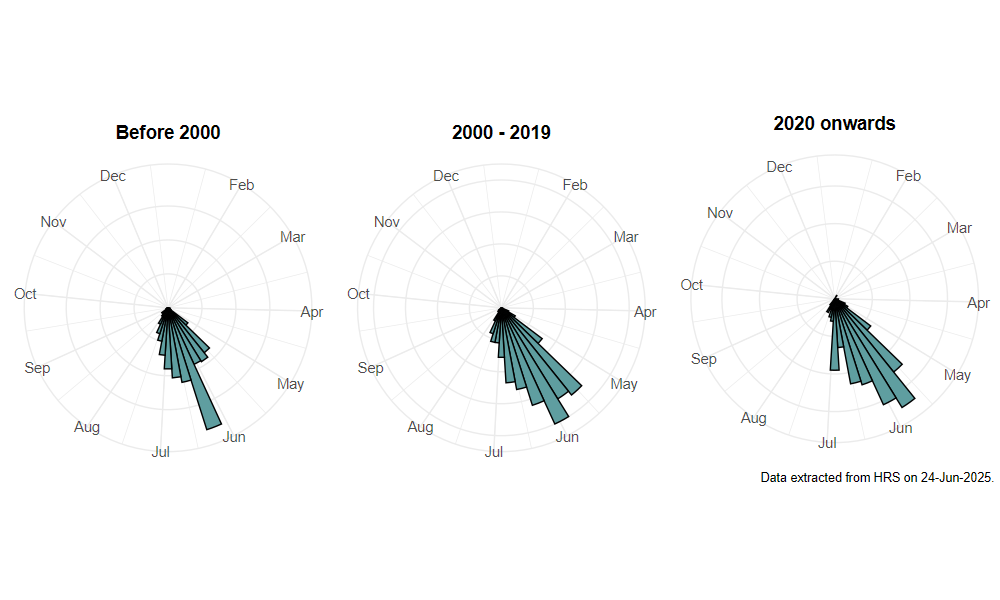Parhelophilus frutetorum (Fabricius, 1775)
Identification
Identification difficulty = 3. ![]()
![]() according to Ball & Morris, 20241
according to Ball & Morris, 20241
Synonymy
Helophilus frutetorum Fabricius in Coe(1953)2.
Biology
The larva and puparium have been found in organic rich mud at the edge of a woodland pond. Adults are usually found around pools in fen and wet woodland. They are normally found in lush vegetation near standing water, but both sexes will visit nearby tree flowers and settle on sun-lit tree foliage. Visits a wide range of flowers, especially white umbels and yellow composites.
Flight period
The following plots show the number of unique records per week excluding those reported to be of immature stages.

Distribution
Locally abundant in suitable habitat in England south of a line between the Humber and the Ribble. Mainly an eastern species with scattered records from south-west England, south Wales and the Midlands. It is scarce in the more northerly parts of its range and is known from one modern locality in northern Cumbria and one from the central belt of Scotland, both areas where P. versicolor is reported. It is therefore possible these records are erroneous.

Trends
The following plots show the Frescalo TFactor vs year and a map of the rescaled frequency (all records) for the species.